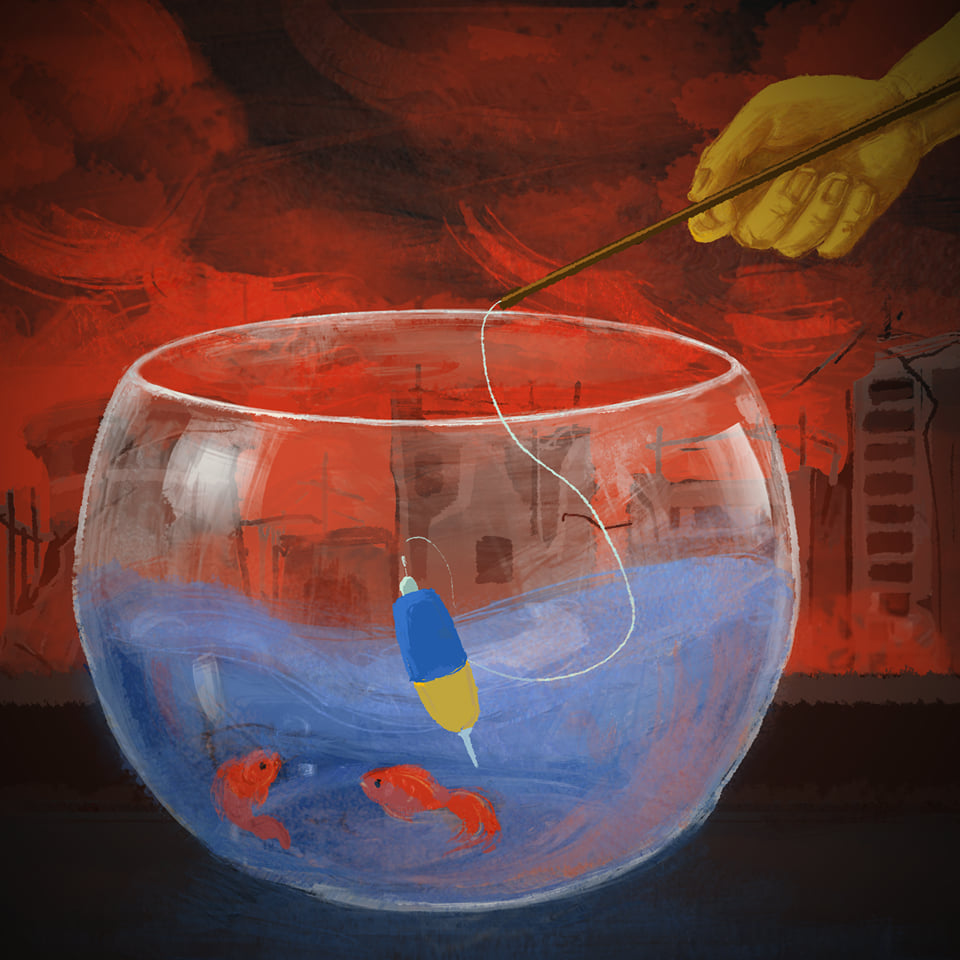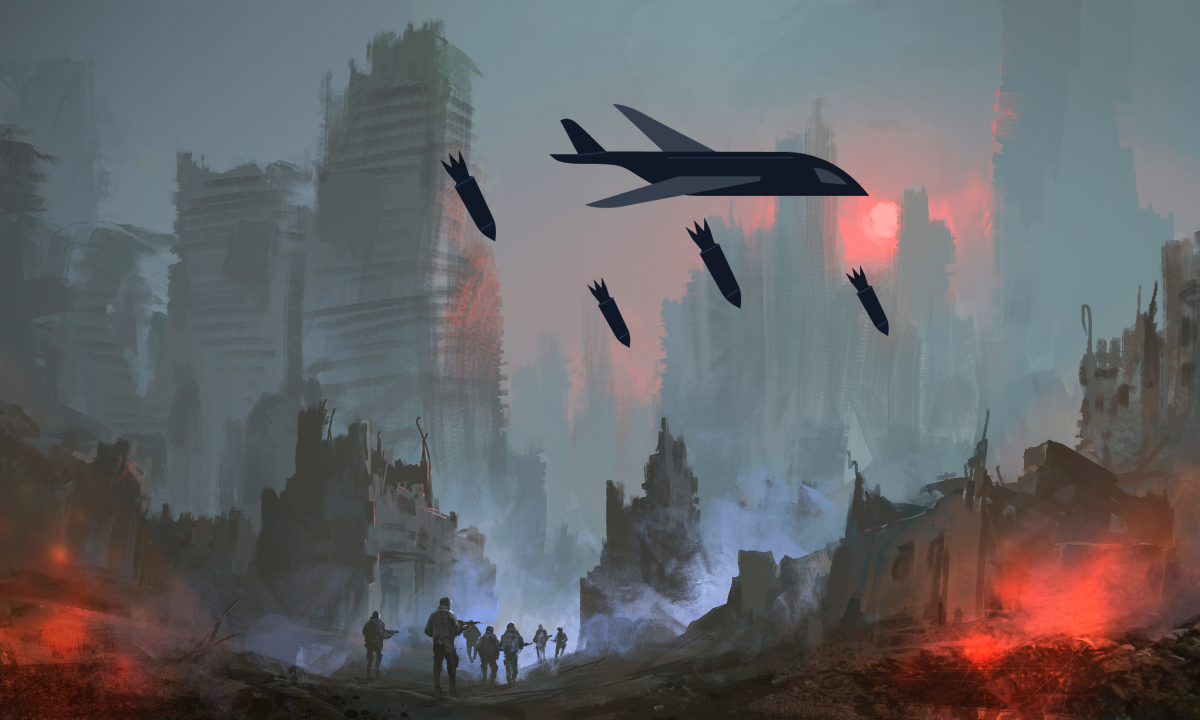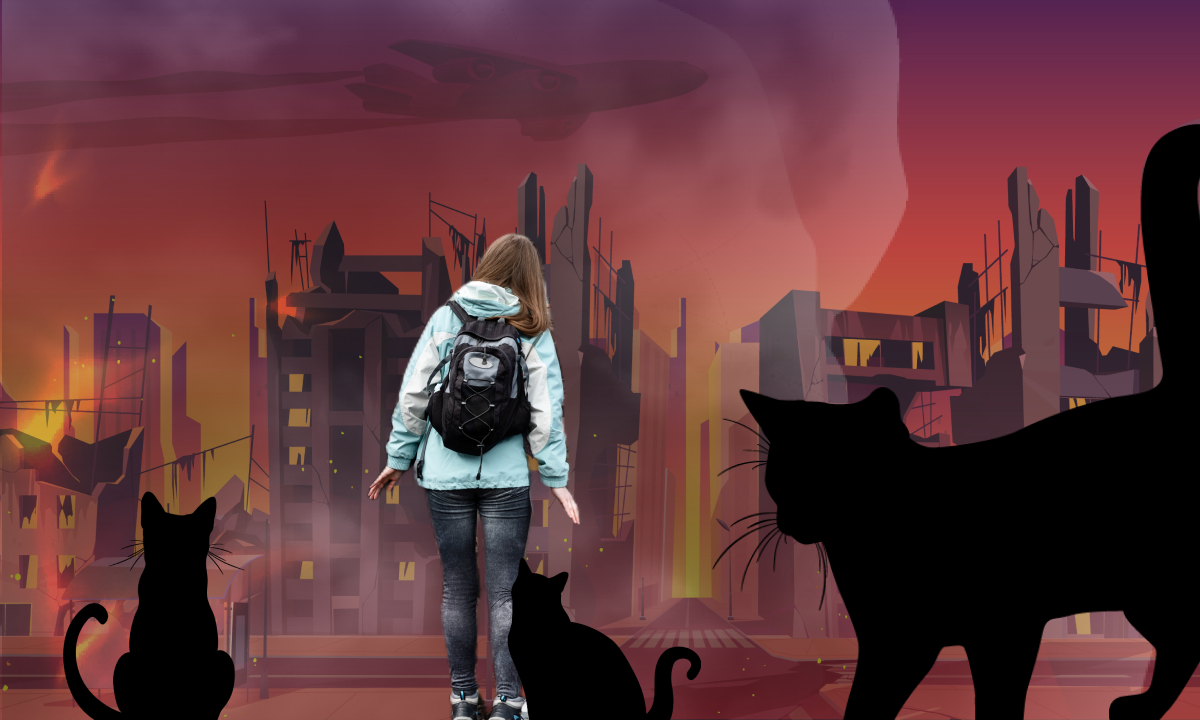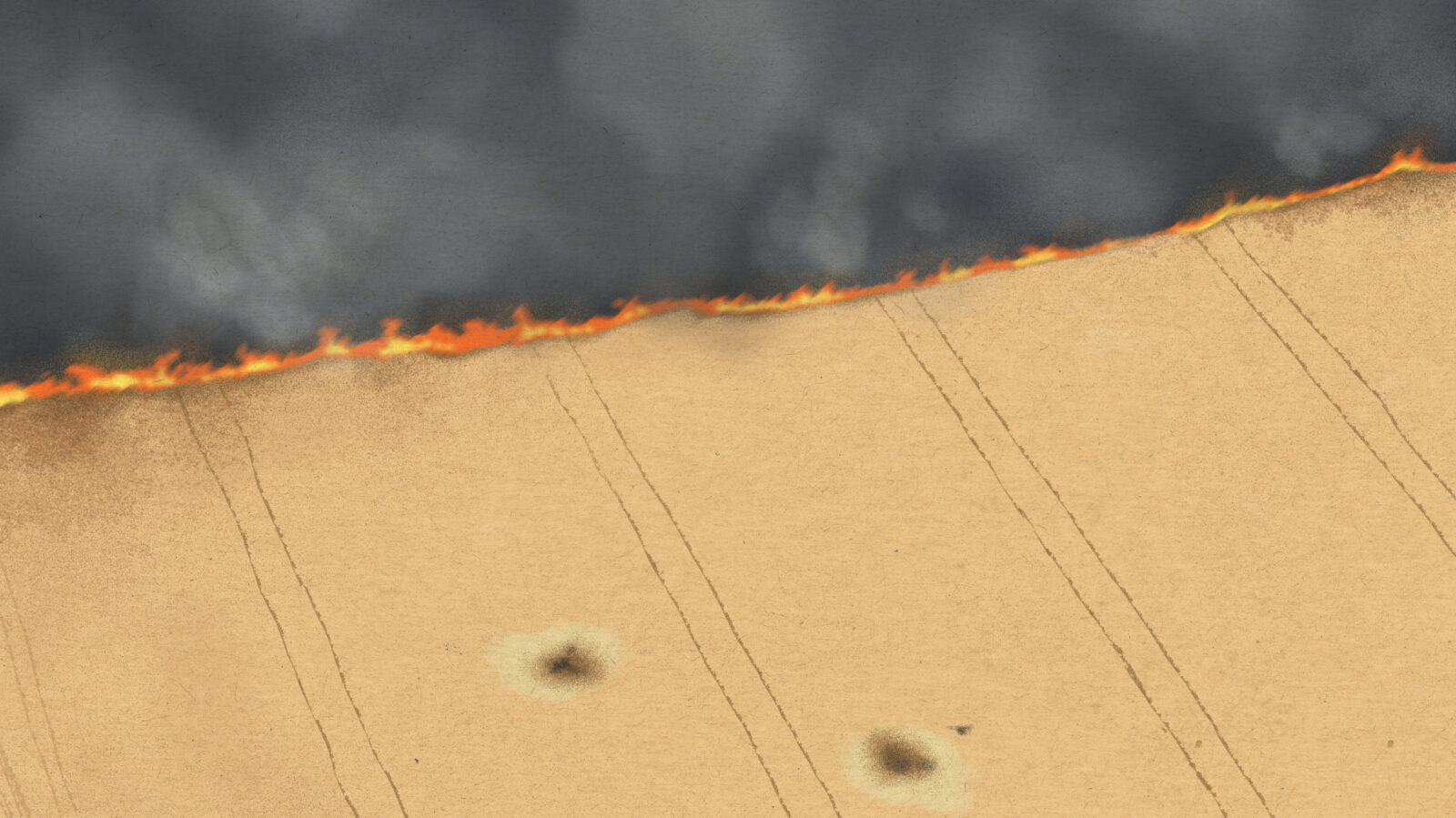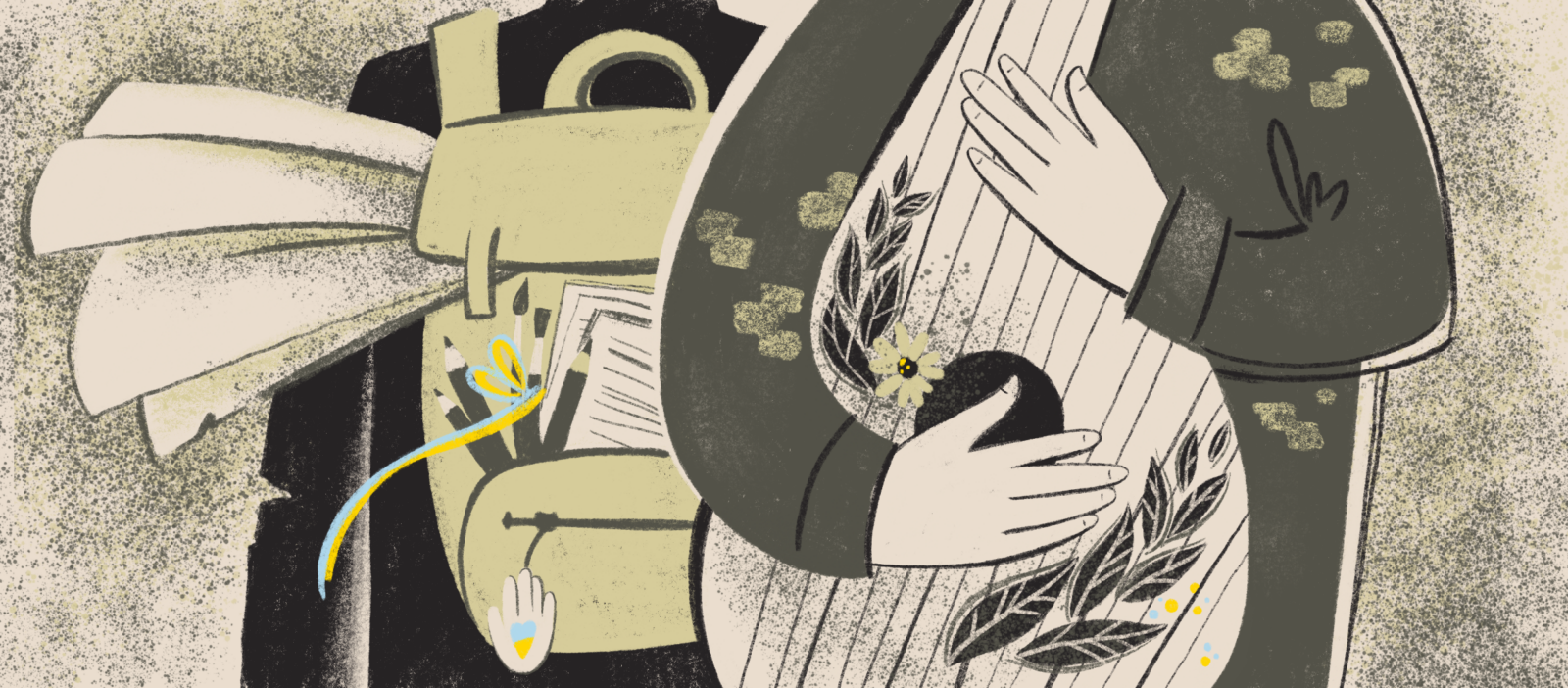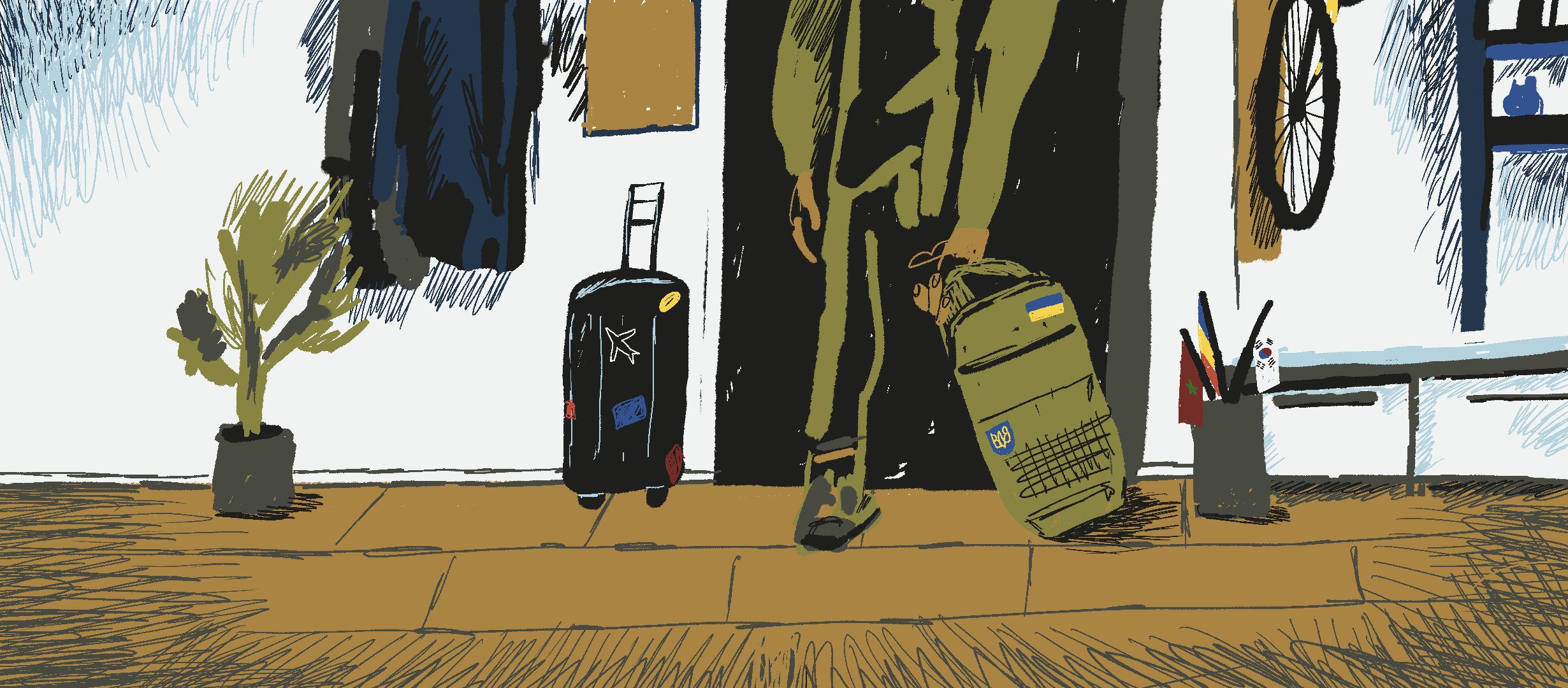Illustrated by Anna Osadchuk
Iryna, 36, is a manager. Since the first day of the war, she and her 12-year old son have stayed at home in Kherson on the fifth floor of a 5-storey building.
“We did not have much choice (to stay or leave). I learned about the war in a call from my relative. At 6.20 a.m., he said that we were probably being bombed. I called my mom who had already talked to my grandma (86 y.o.), a WWII survivor. Grandma said that they were being shelled from Crimea (flashes near Lake Syvash) and planes were flying towards Kherson. And my mom heard an explosion at the Kherson airport at 5 a.m.”
Iryna’s grandma lives in Kakhovka District, separated from Crimea by Lake Syvash. And her mom lives in Kherson, in a neighborhood close to the airport. Later, the apartment building where Iryna’s parents live and the two neighboring buildings were shelled by artillery fire.
Iryna has many relatives in Kherson Region, on the border with Crimea. “We started calling everyone to find out what their situation was. We realized right then that it was too late to go anywhere. And where would we go? Explosions were at the exit from the city, near the airport. Countless military vehicles were moving from Crimea,” Iryna says.
“I filled up a full tank but decided to stay. My parents refused to go, and my husband is still at sea (Iryna’s husband is a sailor). I could not contact him at first, and when I did, we talked and decided that it was dangerous to travel.”
There were many military vehicles in Kherson on the 10th day of war. The Regional Council was surrounded. Buildings were damaged by shell fire. Nevertheless, thousands of people went out to the streets with Ukrainian flags and slogans “Kherson is Ukraine.”
“Now I understand that the war will not end in two or three days (but I do hope it will). I feel fear, despair, and helplessness. I am getting used to shelling, and now I understand if it is far away (no need to run to a shelter). Every minute I listen carefully to the slightest sound—each of them may mean the beginning of shelling. I understand that the city is surrounded, there’s no way out.”
Iryna’s husband is very worried, he cannot do anything but communication with him is really supportive. Talking about the situation with various people, analyses from experts, chores (although cooking for her son is the only thing she can do now) are also helping.
“On the 8th day I tried to watch a TV show to think about something else. My son also really supports me. I am happy he doesn’t realize the whole seriousness of the situation, although he sees and hears a lot. When all this ends, my son dreams of going fishing. He’s already preparing floats and testing them in the aquarium.”
Planning life in wartime is difficult, and there is no understanding of what will happen the next day or even hour. From the very first day, Iryna has backpacks with the most important things, in case she will be forced to flee.
Iryna dreams of peace. “I dream of seeing my husband, my family, friends, and colleagues. I want everyone to be alive, safe, and healthy. I want to cry together and say—we survived it!”

